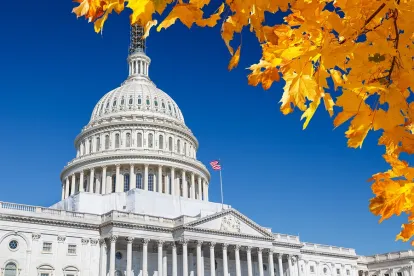A revived “Protecting the Right to Organize Act,” or PRO Act, has passed the House of Representatives again. The sponsors described the bill as comprehensive labor legislation aimed at bolstering workers’ collective bargaining rights. The bill is in the Senate and was referred to the Committee on Health, Education, Labor and Pensions on March 11, 2021.
A year ago, when the House of Representatives first passed the PRO Act, in February 2020, then-President Donald Trump was a vocal opponent and promised to veto it if it ever reached his desk. The Republican-controlled Senate made sure the bill never made it that far.
With President Joe Biden promising to sign the bill if he gets the chance, and Democrats holding the slimmest margin of control in the Senate, the Senate’s current filibuster rule appears to be the only obstacle to the PRO Act becoming law. That possibility may make construction industry employers and industry groups worry as labor groups aim for the most significant labor law overhaul in decades.
The Associated General Contractors of America’s CEO called the PRO Act “a significant threat to the viability of the commercial construction industry.” The President of the AFL-CIO told NPR that the PRO Act would be “a game changer.”
The PRO Act contains a wide range of controversial amendments to the National Labor Relations Act. For example, the bill would codify the Obama administration National Labor Relations Board’s expansive joint employer doctrine under Browning-Ferris, 362 NLRB 1599 (2015) (which the Trump administration board overruled through a Final Rule effective April 27, 2020). Significantly, the proposed definition of “joint employer” under the PRO Act would specifically permit “indirect or reserved control standing alone” to be sufficient to support a “joint employer” finding.
The PRO Act also would change the board’s union election rules and impose a new arbitration procedure on employers. If no collective bargaining agreement is successfully negotiated to agreement within 90 days, a contract may be imposed on the parties by a “tripartite arbitration panel established in accordance with such regulations as may be prescribed.” The imposed contract would be “binding upon the parties for a period of 2 years,” unless the parties agreed otherwise in writing.
Employers also would be prohibited from “locking out” employees and from permanently replacing strikers, but the PRO Act would allow extremely disruptive “intermittent strikes.” At the same time, the PRO Act would strip away employer protections against “secondary” activity, threatening to enmesh neutral third-party contractors with labor disputes arising on a common jobsite.
Further, the PRO Act would allow individual employees to bring civil lawsuits in federal court alleging their own “unfair labor practice” claims and to recover back pay, front pay, consequential damages, liquidated damages, punitive damages, and attorneys’ fees. Corporate directors and officers also could be held personally liable for violations.
While it remains to be seen whether the PRO Act will reach President Biden’s desk in its current or in any similar form, the PRO Act provides a roadmap of labor priorities the administration will seek to accomplish.




 />i
/>i

